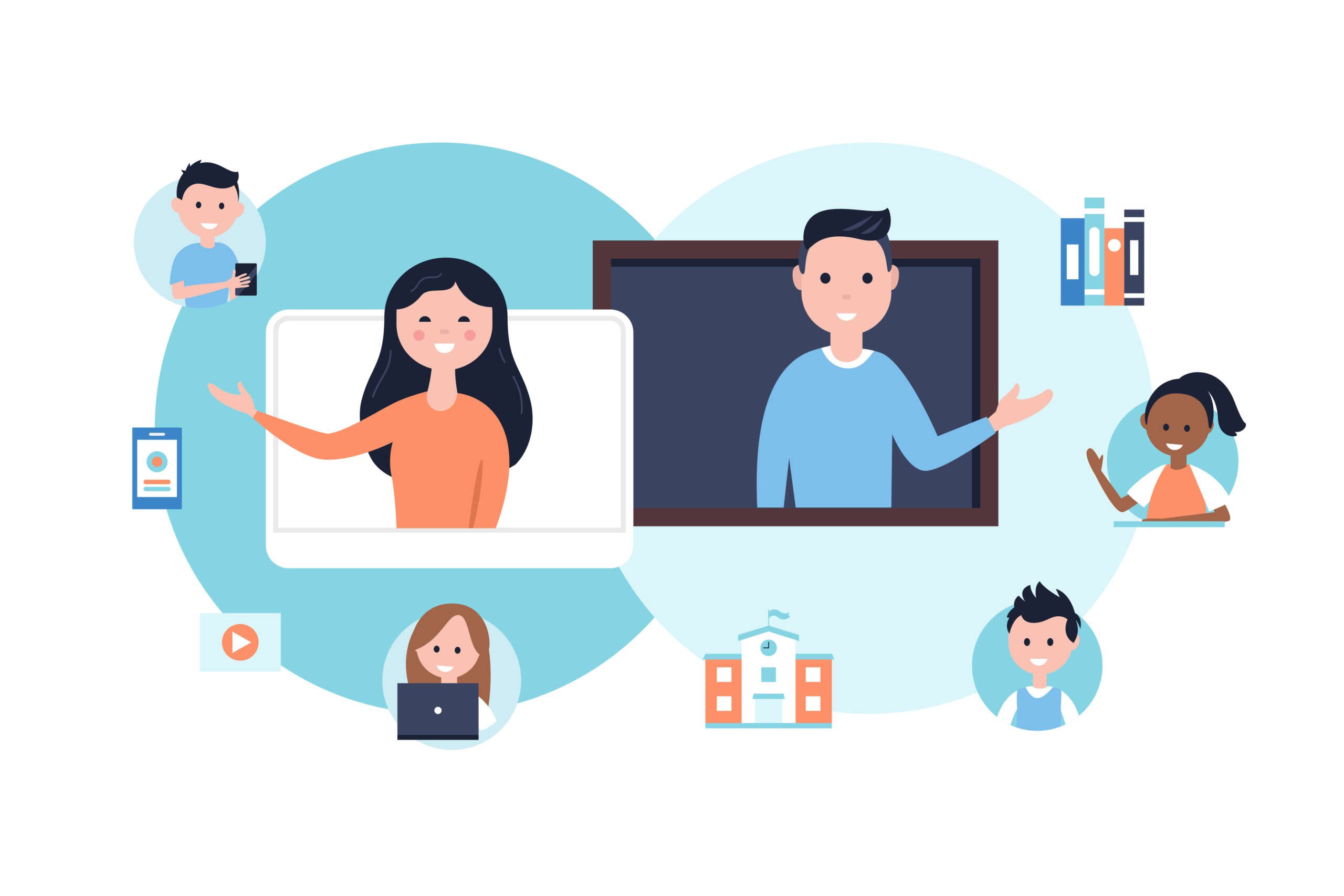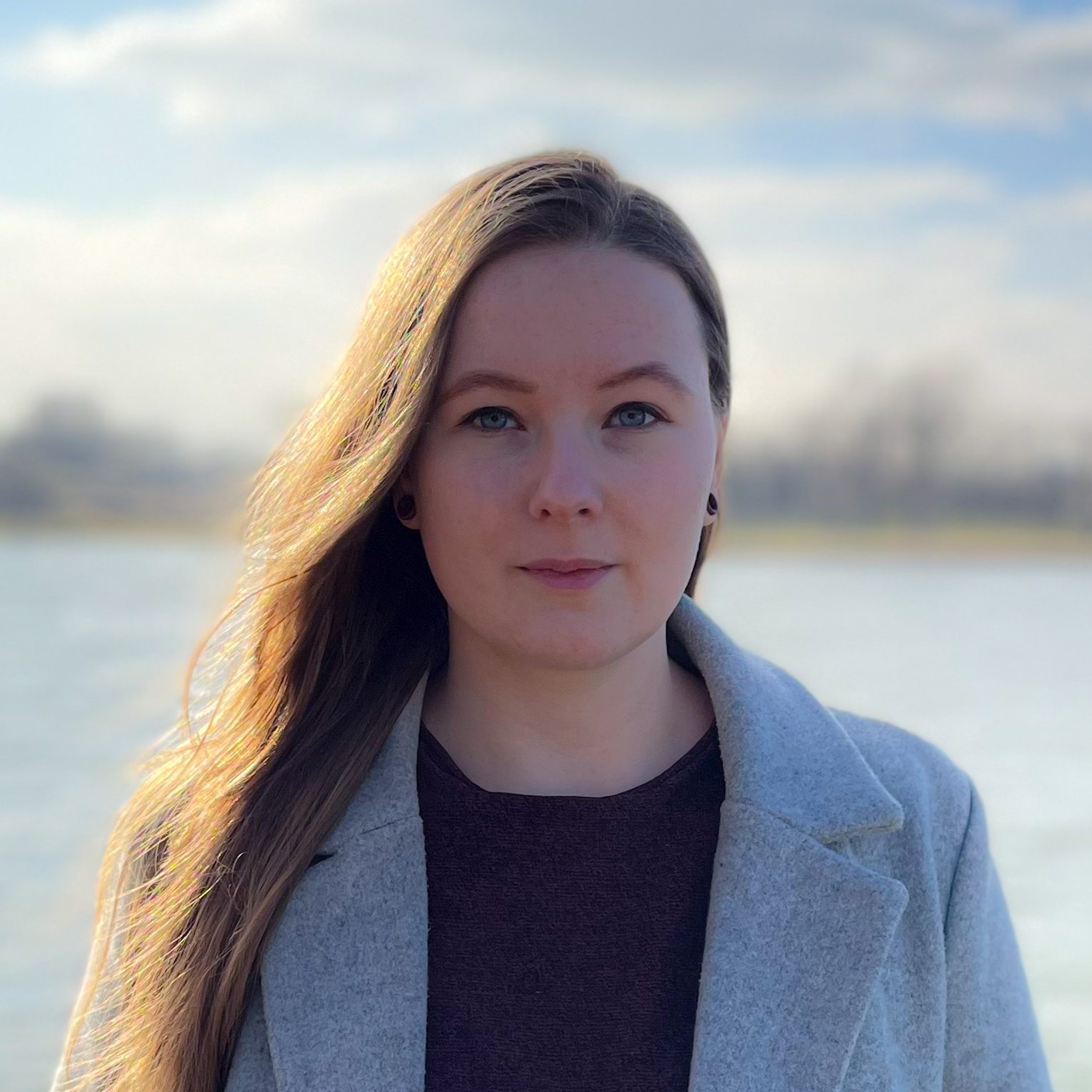Flipped Classroom
Teaching basic knowledge and still working intensively with students? The Flipped Classroom makes it possible. Students work through material individually and independently at home so that you, as the teacher, can use the classroom time for repetition, practice, and application of acquired knowledge.

In a nutshell: What does Flipped Classroom mean?
Flipped or Inverted classroom is a didactic concept that reverses the conventional division between classroom teaching and self-study. Supported by learning materials and teacher supervision, students learn basic concepts at home at their own pace. Therefore, valuable classroom time can be used more efficiently, enabling a stronger focus on practical and research orientation.
Step by Step
Before flipping a course, the following questions are helpful: which parts of the previous classroom teaching are suitable to be outsourced to self-study and which are not? Which aspects are particularly important for students to work on in the classroom?
Mostly, they involve connecting information and analyzing, applying, or critically examining theories. Students should be advised in advance which parts of the course will be flipped and what benefits this entails.
Students can use various (digital) media that support the acquisition of basic knowledge in order to prepare for classroom teaching. One option, for example, would be video clips of lectures or practical sessions, such as a lab course. These can be complemented by matching scripts, which can be used to write down important points or questions. Even the usual course preparation based on scientific essays fits the Flipped Classroom concept.
It is essential for the self-study phase that the students understand the assignment and are aware of your expectations as a teacher. Difficulties in understanding or unclear points can often already be clarified during the self-study phase. Also, it would be beneficial for the students if tutors are available for help.
Via online communication (for example, using ILIAS forums or THspaces), students can be guided to address problems and give each other tips on how to solve them. This offers the advantage that many frequently asked questions no longer have to be answered during classroom sessions, which means that more time is available for other topics.
During the classroom session, content, tasks, and results of the self-study phase must be included without repeating them in detail. Otherwise, students might soon perceive one of the phases as unnecessary, which could lower motivation and attention. The flip enables an innovative design of your classroom teaching in order to achieve a higher learning outcome.
Peer feedback can be given in online and classroom settings, even in large groups, if students have been made aware of feedback procedures. Using clear guidelines with instructions on how to give feedback allows students to help each other.
Furthermore, expert groups allow students to take turns explaining each other’s specialized knowledge. This supports the networking of knowledge and the engagement of all students. Not only is knowledge imparted in the expert groups, but important soft skills such as teamwork, constructive feedback, and critical thinking are also promoted.
Who will help me?
Do you have questions about the technology? You would like to borrow technical equipment? Then contact the media office (medienbuero@th-koeln.de) of the ZLE!
How do I assess in a Flipped Classroom?
A Flipped Classroom produces various interconnected phases of the learning process. Therefore, the concept is well suited for assessing the achievement of the learning outcomes at different points in time. If appropriate, an e-test on knowledge of the relevant content can be taken before each classroom session.
Good Practices
Any questions?
Feel free to contact us by mail to lehrpfade@th-koeln.de!
Links & Literature
- Bonnet, M., Hansmeier, E. & Kämper, N. (2013). Ran ans Werk! Erfolgreiche Umsetzung eines Inverted-Classroom Konzeptes im Grundlagenmodul Werkstofftechnik für studierendenzentriertes und
kompetenzorientiertes Lernen im Maschinenbau. In: Tekkaya, A. E. et al. (ed.), TeachING-LearnING.EUdiscussions. Innovationen für die Zukunft der Lehre in den Ingenieurwissenschaften, pp. 25-33. - Burdinski, D., Glaeser, S. (2016). Flipped Lab – Effektiver lernen in einem naturwissenschaftlichen Grundlagenpraktikum mit großer Teilnehmerzahl. In: Berendt, B., Fleischmann, A., Schaper, N.; Szczyrba, B. und Wildt, J. (ed.). Neues Handbuch Hochschullehre. Berlin. Griffmarke E 5.4.
- Fischer, M. & Spannagel, C. (2012). Lernen mit Vorlesungsvideos in der umgedrehten Mathematikvorlesung. In: Desel, J., Haake, J.M. & Spannagel, C. (ed.), DeLFI 2012 – Die 10. e-Learning Fachtagung Informatik der Gesellschaft für Informatik e.V. Bonn, pp. 225–236.
- Handke, J. (2012). Voraussetzungen für das ICM. In: J. Handke & A. Sperl (ed.), Das Inverted Classroom Model. Begleitband zur ersten deutschen ICM-Konferenz. München: Oldenbourg Wissenschaftsverlag, pp. 39–52.
- Loviscach, J. (2012). Videoerstellung für und Erfahrungen mit dem ICM. In: J. Handke & A. Sperl (ed.), Das Inverted Classroom Model. Begleitband zur ersten deutschen ICM-Konferenz. München: Oldenbourg Wissenschaftsverlag, pp. 25–36.
- Sams, A. (2012). Der „Flipped“ Classroom. In: J. Handke & A. Sperl (ed.), Das Inverted Classroom Model. Begleitband zur ersten deutschen ICM-Konferenz. München: Oldenbourg Wissenschaftsverlag, pp. 13–22.
- The Flipped Classroom Workbook Vol. 2 by Daniel Lambach
Header-Image: © juliabatsheva/stock.adobe.com



